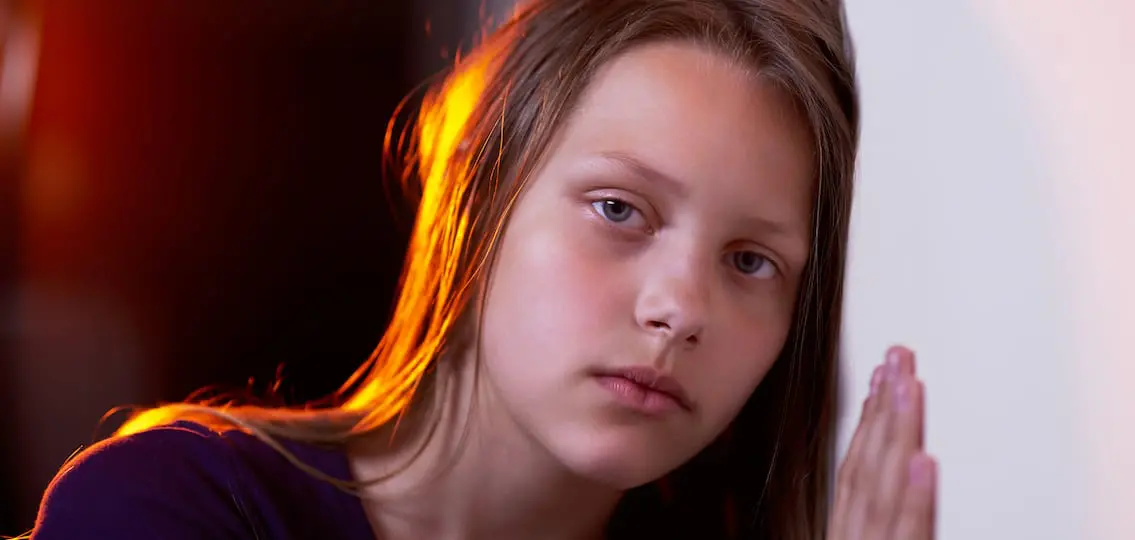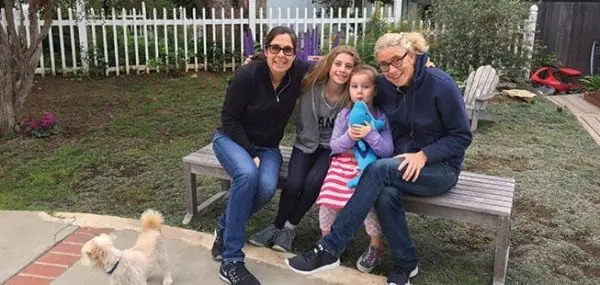Parents today are stressed about stress and worried about worrying. But Lisa Damour, Ph.D., author of the bestselling parenting book Untangled, has good news: Stress and anxiety are generally normal and healthy, and with our guidance kids can manage them. In her new book, Under Pressure: Confronting the Epidemic of Stress and Anxiety in Girls, Dr. Damour has advice for parents on supporting this healthy process of learning to sit with and manage these emotions.

Q: How can we think about stress and anxiety as positive forces?
Damour: Stress is what happens when people operate at the edge of their capacities. Think of weightlifting: You cannot build muscle unless you strain those muscles. You cannot get smarter unless you are doing work that is uncomfortably difficult. Everyone who has taken a new job that was hard felt stressed by it, and six months later, they were better and smarter than they were six months prior.
| [adrotate banner=”90″] |
The aim is to have stress neither be too little nor too great. You don’t want a stress-free environment for yourself or your children. You also don’t want to be overwhelmed by stress. There is chronic stress. There is traumatic stress. There are forms of stress that are over a line that is no longer healthy. We’ve lost sight of that line, and we’ve lost sight of the true benefits of stress in terms of promoting growth and durability.
I have kids who come in and say, “I have anxiety.” I say, “Everybody has anxiety. That’s how you cross the street without getting hit by cars.” That’s how you get your work done because, eventually, after watching Friends for the 48th time, you become sufficiently anxious about the work that you have to do, and you turn it off and go do the work. Anxiety is what protects you from yourself and the world around you.
Q: How do parents fit into the picture?
Damour: The governing metaphor here is back when your toddler first scraped their knee. The first thing the kid does is look at their knee. The next thing they do is look at your face. If you are saying, “It’s okay, let’s get you cleaned up,” they’re fine. If you freak out and become very upset, they panic. We have a lot of power when it comes to helping our kids respond to the predictable stressors and fears that come with growing up.
Q: What’s a healthy way to respond when our kids are upset?
Damour: When a child or teenager feels that they are facing an insurmountable problem, but it is not an actual crisis, there may be some room to play worst-case scenario. When kids come home and say, “There will be no one for me to sit with at lunch tomorrow.” The parent can think through with the child, “Let’s say that happens. What would you do?”
The key thing in this is the tune, not the lyrics, for the parent. The tone in which they engage this conversation must be one of interest, yet comfort with the reality that their child may arrive at school and have no one to sit with at lunch. That’s where the critical work gets done: Something that the child has declared unbearable turns into something that is merely a hassle.
Another fallback is the one-two punch of validating whatever they’re upset about. Kids will tell me something that’s bothering them, and I’ll go, “That stinks.” That word has a magical power. It’s lighthearted enough, but pungent enough that they’re like, “Okay, you get it.” Following that, once that has had time to settle in, “How are you going to handle this?” You own this. You’re going to run this show. That combination goes really far. It gives parents a way to transact where they are completely engaged with the kid and the problem, and simultaneously transmitting their total comfort with the fact their kid has a problem.
| [adrotate banner=”160″] |
Q: How do we help ourselves not overreact?
Damour: Our kids read us all day long. They know they are bringing us child-size problems, even if the problem feels very big to them. If they read the reaction that we see their child-size problem as a full-scale crisis, that does not help them feel reassured that they can manage what’s in front of them. Underneath that parental reaction is the premise that the child should not be uncomfortable, and if the child is uncomfortable, that has to be vanquished.
As well-meaning and loving as that is, that is a fundamentally handicapping view of what it means to be human. The most durable human beings can tolerate a pretty high level of discomfort. They don’t like it, but they’re not frightened of it. If you think about any hard work you’ve accomplished, it’s not fun. We have to reject the premise that it’s a problem for our kid to be uncomfortable. That is driving a lot of what’s not working so well for our kids right now.
Q: Can you give an example of how to support a teenager who’s upset?
Damour: Bruce Compass of Vanderbilt [University] has illuminated a three-step process on making stress more manageable for kids, and grownups too. The first step is the hardest–we have to accept the reality that is before us. It may be that your child doesn’t like riding the bus, because of the kids or the atmosphere. To this we need to say, nicely, “We’re not hiring a driver, and you’re not going to get on a different bus. This is your bus.” Weirdly there’s a lot of relief that comes from that. It’s a very strange thing to say, “Okay, this is what I’m up against,” and to stop fighting it.
The second step is to see if there are practical solutions, things that could actually be done, once we accept this is the hand we’re dealt. It may be that the child says, “Maybe I can ask the bus driver to move my seat so I’m not by the kids who are annoying me.”
The third piece is to find enjoyable distractions from the rest of it. Maybe you can sit next to somebody you like, and that’s your happy distraction that will get you to school.
You are working to solve the kid’s dismay with them, without indulging in the idea that they need to be rescued from this, or that this is a horrible problem that is unusual and strange and should never have been visited on your child.

Q: What’s the biggest takeaway you want parents to have about dealing with stress?
Damour: Neither parents nor children need to be frightened of stress and anxiety, and there’s a great deal that we can do to manage it when it feels out of control.




